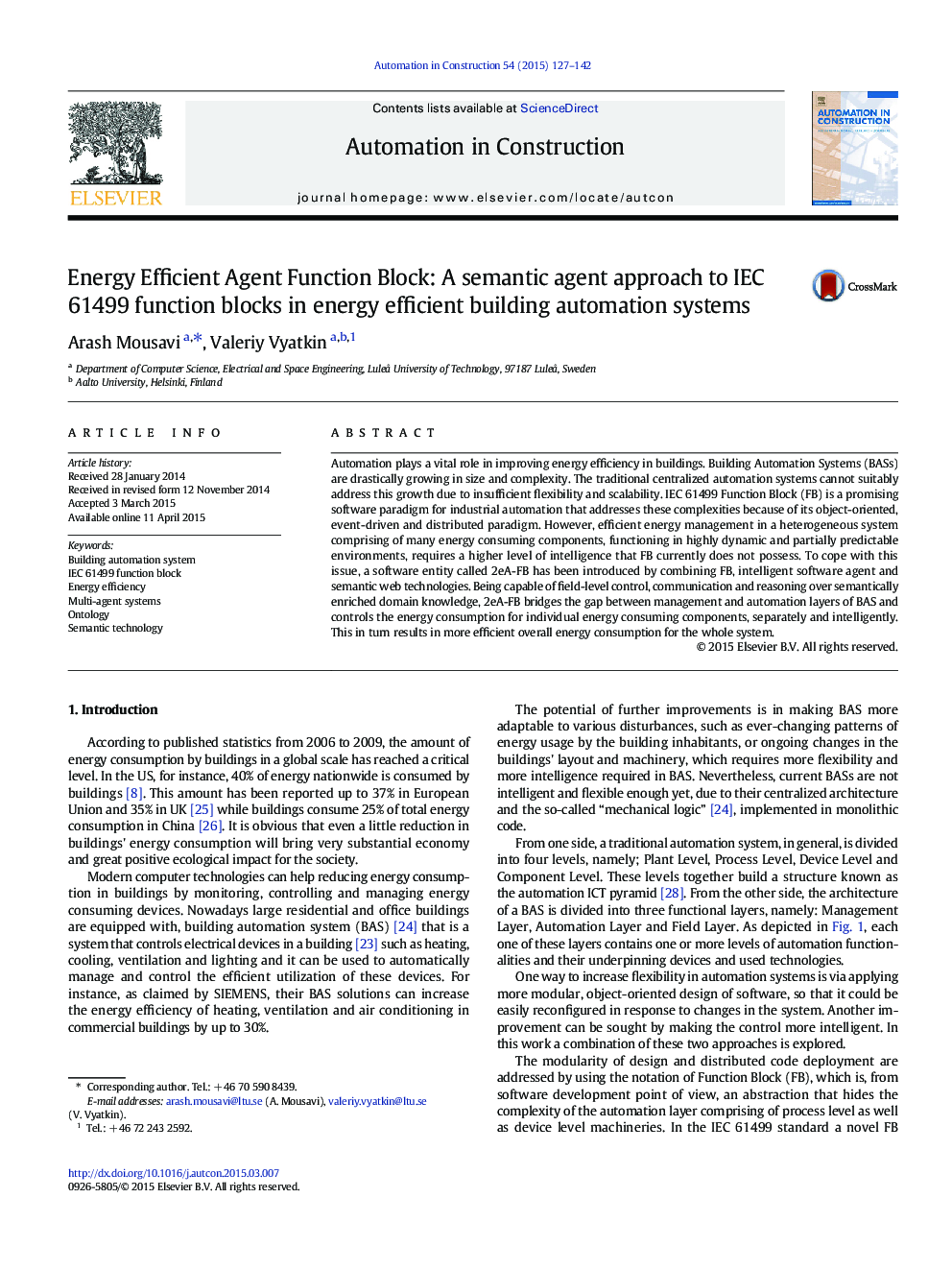| کد مقاله | کد نشریه | سال انتشار | مقاله انگلیسی | نسخه تمام متن |
|---|---|---|---|---|
| 246330 | 502361 | 2015 | 16 صفحه PDF | دانلود رایگان |

• An agent-based and knowledge-driven control software entity for BAS is proposed.
• To enhance IEC 61499 function block to maintain energy efficiency in buildings.
• We compared energy efficiency of proposed and traditional control strategies.
• In predefined situations, proposed model reduced considerable amount of energy consumption.
• Ontology & agent radically enhance function block concerning energy efficiency.
Automation plays a vital role in improving energy efficiency in buildings. Building Automation Systems (BASs) are drastically growing in size and complexity. The traditional centralized automation systems cannot suitably address this growth due to insufficient flexibility and scalability. IEC 61499 Function Block (FB) is a promising software paradigm for industrial automation that addresses these complexities because of its object-oriented, event-driven and distributed paradigm. However, efficient energy management in a heterogeneous system comprising of many energy consuming components, functioning in highly dynamic and partially predictable environments, requires a higher level of intelligence that FB currently does not possess. To cope with this issue, a software entity called 2eA-FB has been introduced by combining FB, intelligent software agent and semantic web technologies. Being capable of field-level control, communication and reasoning over semantically enriched domain knowledge, 2eA-FB bridges the gap between management and automation layers of BAS and controls the energy consumption for individual energy consuming components, separately and intelligently. This in turn results in more efficient overall energy consumption for the whole system.
Journal: Automation in Construction - Volume 54, June 2015, Pages 127–142